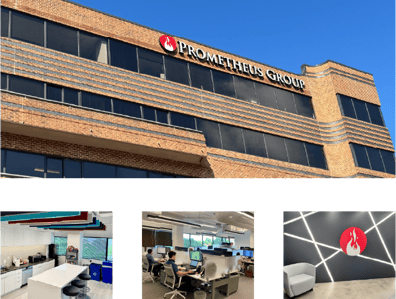The food and beverage sector has conditions like no other. The industry is highly regulated because its products are for human consumption. Any deviation from strict control can lead to contaminated products with the possibility of outbreaks, illnesses, and lawsuits.
We are in a time of rapid change due to the global pandemic. As a result, society is relying heavily on the food and beverage industry to continue production in support of communities around the world. This is just one industry of many overcoming new challenges to continue to maintain some semblance of the status quo…even with so many other regulations already at play.
Food and beverage manufacturers are challenged with delivering quality products at the lowest cost while adhering to strict regulatory requirements. See the U.S. FDA Food and Beverage Regulations for an example of some of the regulations they must adhere to. Controlling the work management process and using data to improve operations can mean the difference between a profitable year and an unprofitable one.
Food and beverage organizations are each unique in how they manage their assets and their reporting requirements. They share certain commonalities, however: tight margins, industry regulations, and large operating expenses result in increased pressure on maintenance departments to:
- Improve efficiency and field excellence
- Boost operational intelligence and decision-making
- Achieve high compliance standards and be prepared for regulatory audits and internal reviews
Like most asset-intensive industries, the food and beverage industry is reliant on the uptime of revenue producing assets. Minimizing equipment downtime allows companies to realize greater levels of production from their equipment. This is where maintenance plays a key role in the bottom line.
By maximizing asset performance through effective processes and tools, food and beverage organizations can control costs and meet distinct maintenance requirements.
When focusing on budget performance issues, management seldom looks to maintenance as an area with the potential for significant gains. It’s often a “necessary evil.” However, in the food and beverage industry, maintenance management ineffectiveness generates a significant financial loss for the company.
Food and beverage maintenance EAM practices can mean the difference between profit and loss. Continuous production means equipment is constantly in use, so scheduled maintenance must be brief and effective.
How to Improve Maintenance in the Food and Beverage Industry – Food and Beverage Industry Requirements
The food and beverage industry has unique maintenance needs related to food quality standards, production critical assets, and complex work crews. These needs pose an interesting challenge for maintenance teams striving for more optimized practices.
- Identification of changes in asset health – The identification of changes to asset health, or an impending failure is critical for profit margins in the food and beverage industry. In order to better control their maintenance costs, maintenance teams need the ability to better access and monitor machine data. When maintenance teams can easily identify an asset issue, they can react immediately and swiftly resolve the problem, preventing unexpected and costly breakdowns.
- Strict requirements on equipment performance and food quality standards – The food and beverage industry face multiple industry regulations and food quality standards. The impact of a failure on company revenue can be extreme. Reducing risks and maintaining regulatory standards needs to be at the center of all maintenance related projects. Asset condition monitoring, as well as effective production control and predictive shutdown systems, are fundamental to safe and secure operations.
- Complex asset connections – Assets in the food and beverage industry are connected by a system of conveyors, belts and fasteners. This adds a level of complexity to maintenance that other industries don’t experience. Maintaining this equipment to keep pace with the rest of the cogs in the food-processing production line requires constant attention and specific technician skills.
- Identify and manage production critical work orders easily – When a critical production asset requires maintenance, it is necessary for the maintenance to be completed as quickly as possible. Additionally, this work cannot take place during critical production periods, unless absolutely necessary. Maintenance teams need the ability to easily plan, schedule, assign, execute, and complete work orders.
- Maximize uptime of production equipment – A food and beverage organization’s production capabilities are highly dependent on the state of its capital assets. Leveraging the availability of key production assets is critical for organizations to meet their quotas. Maintenance teams need to work within these demands to ensure assets are available during critical production periods.
- Continuous improvement with effective reporting – As the saying goes, knowledge is power. When maintenance teams can analyze their maintenance practices, they can improve their planning, scheduling, and execution, and in turn, can optimize their processes. Food and Beverage maintenance teams need access to accurate data to ensure analysis is correct.
- Complex maintenance shifts and work crews – Food and beverage maintenance planners and schedulers need the ability to handle various groupings of resources for their specific work units. Flexibility to manage crews by craft, team, or a combination is critical for successful planning and scheduling of maintenance tasks.
Enhance the Effectiveness of Your Food and Beverage Facility's Asset Management
It’s no easy feat creating efficiencies within a food and beverage organization. It’s even harder to do so in this current climate when regulatory compliance requirements are more strict than ever before, assets are critical for production, work crews are complex and pressures to avoid downtime are high.
The Prometheus Platform was built on the premise of helping maintenance organizations to create efficiencies by connecting and optimizing every step of the maintenance workflow. Prometheus Group has worked collaboratively with the largest and most sophisticated maintenance organizations to enhance their asset performance.
To learn how the Prometheus Platform can help your organization meet the unique requirements of the Food and Beverage Industry, Request a Demo with one of our experts now.



